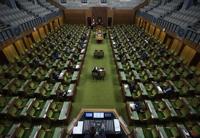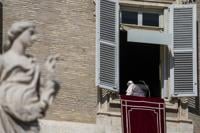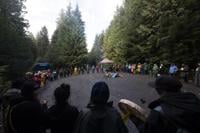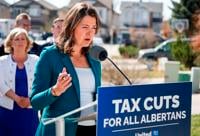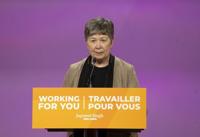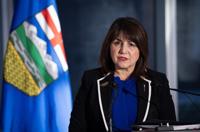OTTAWA - Opposition parties say the Liberals must recall Parliament within the next month to act on Donald Trump's tariff threat, but the government insists it does not need to pass legislation to take the action the U.S. president wants to see.
And experts say there's no incentive for the Liberals to heed that call and risk being toppled while they're in the midst of a leadership race.Â
"Right now, they have control of what is happening, they have control of the message and the opposition is trying to make itself heard," said Frédéric Boily, professor of political science at the University of Alberta.
On Monday, Trump hit pause on his plan to impose sweeping tariffs on Mexico and Canada, which would have effectively tipped the continent into a trade war.
Prime Minister Justin Trudeau said he presented Trump with Canada's plan to secure the border and tackle fentanyl production and trafficking. Trump agreed to delay tariffs until at least March 4.
Many elements of that border plan were announced in December as part of a $1.3-billion package.Â
Monday's deal includes another $200 million in spending, a pledge to list Mexican cartels as terrorist entities and a promise to appoint a "fentanyl czar" to co-ordinate efforts to crack down on the drug.
Public Safety Minister David McGuinty said the government does not need to recall Parliament sooner than it is scheduled to, on March 24.Â
Trudeau prorogued Parliament on Jan. 6 to allow the Liberals time to choose their new leader, a vote that is set for March 9.Â
"All of the powers that we need, for example, like listing cartels (as terrorist groups), those are things that are within our grasp now; it's simply a question of moving forward and implementing," McGuinty said in an interview.Â
Some aspects of the December border plan would require legislative changes, according to the government's own background information.Â
Those include amendments to the Customs Act that would allow Canada Border Services Agency officers to examine goods destined for export, changes to the country's money laundering and terrorist financing law, and amendments to immigration law aimed at strengthening the visa system.Â
But it's not clear the minority government would have any support to do that.
The Conservatives, the NDP and the Bloc Québécois have said they will vote non-confidence at the earliest possible opportunity when the House of Commons does reconvene.Â
Now, with the threat of tariffs still looming, the Tories and NDP want Parliament back for very different purposes.
On Monday, Conservative Leader Pierre Poilievre set out his own response to Trump's tariff threat that included sending ºÚÁϳԹÏÍø Armed Forces troops to the border.Â
"Why, in the middle of this crisis, have the Liberal party powers put themselves ahead of ºÚÁϳԹÏÍøs?" he asked, adding they should recall Parliament to "pass a Canada first plan, like the one I've just laid out."
NDP Leader Jagmeet Singh has said New Democrats would be willing to work with the Liberals to pass an emergency aid package to help ºÚÁϳԹÏÍøs in case tariffs come on March 4.Â
"We need to call back Parliament and we need to have a package of protections in place for workers that might be impacted," Singh said at a Tuesday press conference in Montreal.Â
Poilievre has given no indication that his party would not try to force an election, as they have repeatedly promised to do. In December, the Conservatives floated a plan to introduce a non-confidence motion at a House committee and bring it to Parliament.Â
Green Party Co-Leader Elizabeth May said she would usually advocate for debate in the House of Commons, but "you can set with an egg timer how long Parliament would last once we convene."Â
She warned that once an election campaign is underway, the government will not have the same power to respond.
"We would be far more hobbled in our ability to respond as a country to things that Donald Trump might want to throw at us," she said.
Geneviève Tellier, professor at the school of political studies at the University of Ottawa, said there's no real urgency for the Liberals to meet the House of Commons right away. She agreed with Boily that opposition leaders are struggling to be heard.Â
"Mr. Poilievre has been telling us for about two years that the country is broken, that the system is broken (and) no longer works. And now we've just had a movement of unity in the last few days — maybe a few hours — like we haven't seen in a long time," she said.Â
Lori Turnbull, a professor at Dalhousie University's faculty of management, said beginning a parliamentary session now "would require big trust in NDP," and said she does not think it's likely to happen before the new Liberal leader is in place.
— With files from Nick Murray
This report by ºÚÁϳԹÏÍø was first published Jan. 4, 2025.


